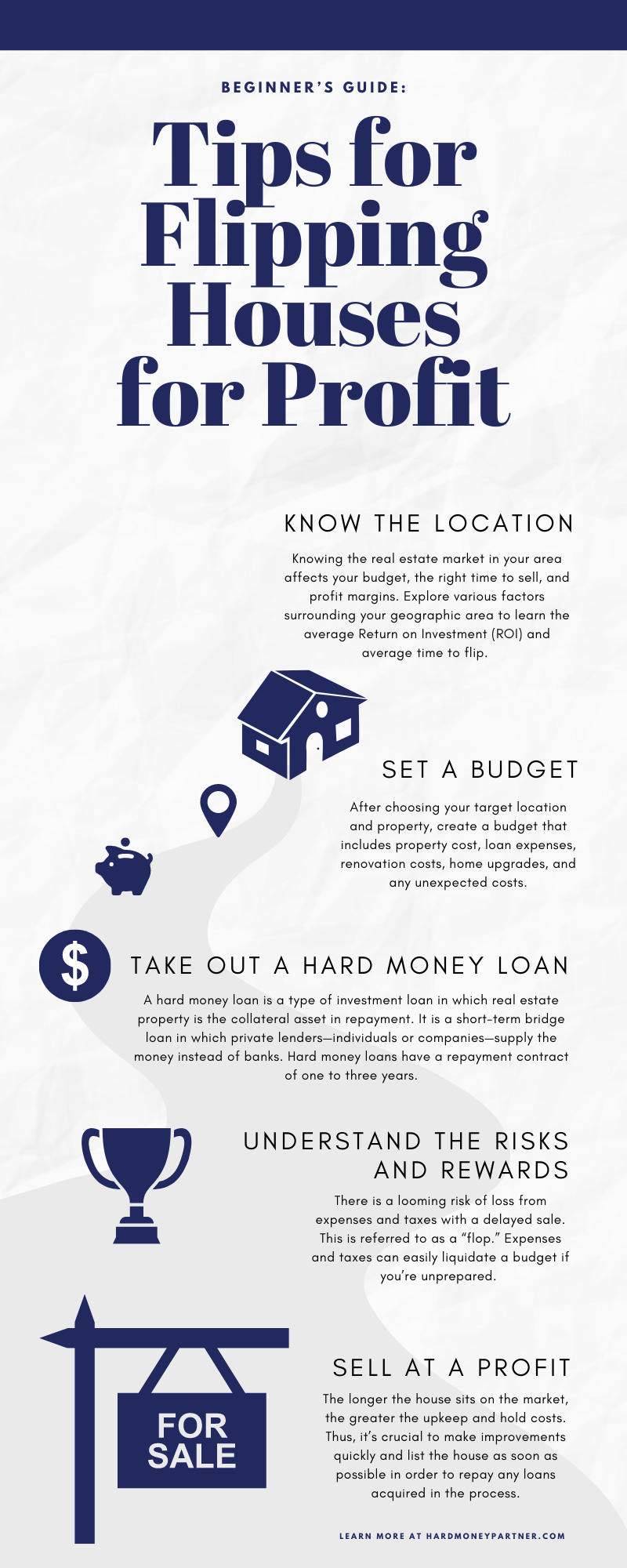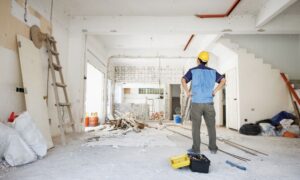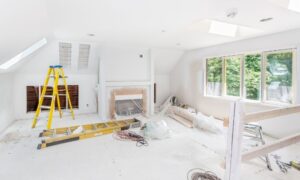Real estate is a major investment for people looking to buy an apartment, condominium, or house. So much so that it’s a lucrative business field for realtors who list and sell these properties. While real estate involves selling and buying homes for prospective buyers, house flipping is another outlet to consider. House flipping involves purchasing a property at low value to renovate and sell at a profit. Anyone can do it with the right knowledge and starting location. Those interested in learning more about house flipping must read this beginner’s guide: 6 tips for flipping houses for profit. You’ll see that knowing the location of the property, setting a budget, taking out the right loans, knowing when to sell, and understanding the risks and rewards are all important parts of the process.
What Is House Flipping?
House flipping, or real estate flipping, is the process of purchasing a property at a low value to resell at a higher value. This process commonly pertains to renovating homes of lower quality, like fixer-uppers, and fixing them into livable properties. House flipping is typically a speedy process. A faster turnover time means faster profit. Becoming a successful house flipper is no easy feat. It requires patience, dedication, and passion. Naturally, do your research ahead of time. Those who fail to prepare often lose the most money on a flip.
Know the Location
On that note, you can easily become a successful house flipper with the right steps and mindset. Research is a crucial element to earning maximum profit. Mainly, location matters. Knowing the real estate market in your area affects your budget, the right time to sell, and profit margins. Explore various factors surrounding your geographic area to learn the average Return on Investment (ROI) and average time to flip. Additional factors like education, average income, crime rate, and desirable neighborhoods all affect the ROI and average selling time of a house. Pay attention to where homes sell at a high rate too. This might indicate local economic conditions or crime rates pushing people to move out. An ideal neighborhood to invest in is one with stable employment, low crime rates, and a bustling economic sector. The most desirable homes are ones in areas that have expected growth.
Set a Budget
House flipping costs money, which is why you must create a budget to avoid great financial losses. After choosing your target location and property, create a budget that includes property cost, loan expenses, renovation costs, home upgrades, and any unexpected costs. This budget should appropriately represent the expected cost and upkeep of the home. Without a budget, home repairs and upgrades could eat away at your expenses must more than expected. With a budget, your profit margin should hit around ten to twenty percent when you sell. Keep this in mind to stay ahead of your expenses and earn a net profit from your investment.
Take Out a Hard Money Loan
A hard money loan is a type of investment loan in which real estate property is the collateral asset in repayment. It is a short-term bridge loan in which private lenders—individuals or companies—supply the money instead of banks. Hard money loans have a repayment contract of one to three years. Those taking out a hard money loan do not need to prove financial positioning through credit since hard money loans rely on collateral assets, such as private or personal property or finances. It also allows borrowers to establish credit if they have little to begin with. Without the need for banks or public investments, borrowers simply pay the original fee and closing costs. Incorporate the hard money loan into your budget so that you have wiggle room for upcoming and unforeseen renovations.
Understand the Risks and Rewards
In our beginner’s guide of 6 tips for flipping houses for profit, it is important to note that house flipping is a risky business. While flipping houses can be lucrative if you know what to do, it has its pros and cons. Some of the main reasons people flip houses are to make a quick profit, add a secondary income, get into real estate, network, or as a passion project. Thanks to the popularity of home flipping television shows and the internet, house flipping has become a hobby for passionate contractors or those curious about their local real estate market. That’s not to say it’s entirely risk-free, though. There is a looming risk of loss from expenses and taxes with a delayed sale. This is referred to as a “flop.” Expenses and taxes can easily liquidate a budget if you’re unprepared. Additionally, the burden of hold costs, or the costs required to maintain the property the longer you hold it, means more money lost in long-term investment. Not to mention, flipping a house causes stress, especially when it comes to finding a reliable contractor, anticipating costs, attracting buyers, and meeting deadlines.
Sell At a Profit
Of course, part of any successful house flipping operation is to sell at a profit. It might help to hire a real estate agent to list your property in a timely manner. Still, you need to work fast. The longer the house sits on the market, the greater the upkeep and hold costs. Thus, it’s crucial to make improvements quickly and list the house as soon as possible in order to repay any loans acquired in the process. Also, the sooner you list your property and sell it, the sooner you can move on to other properties in the area.
When it comes to securing fast and reliable hard money rehab loans, we at Hard Money Partners have your back. Our initial loan application makes the loan review process fast, efficient, and, best of all, personalized to your specific situation. If you’re in the Oklahoma City or Tulsa areas, fill out our online application to get started. Otherwise, give us a call with any questions or concerns, and we’ll be more than happy to assist you. Our goal is to get you the money you need for your house flipping project in a timely manner.





